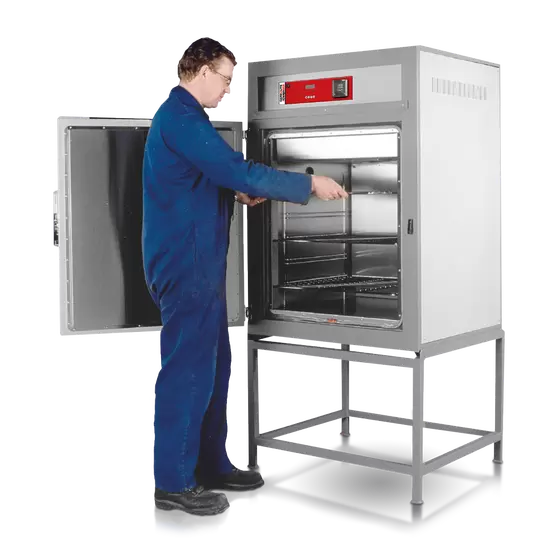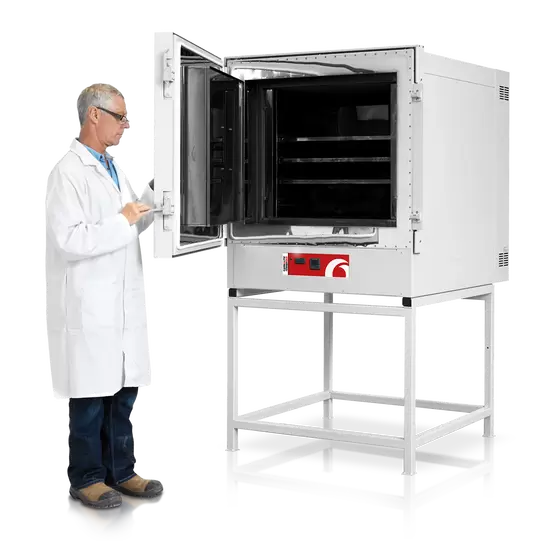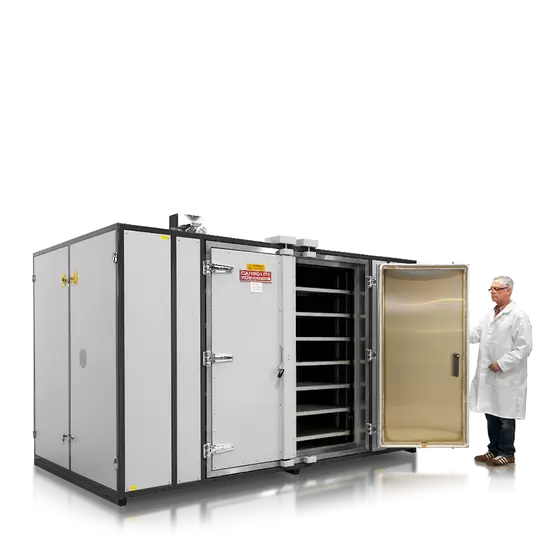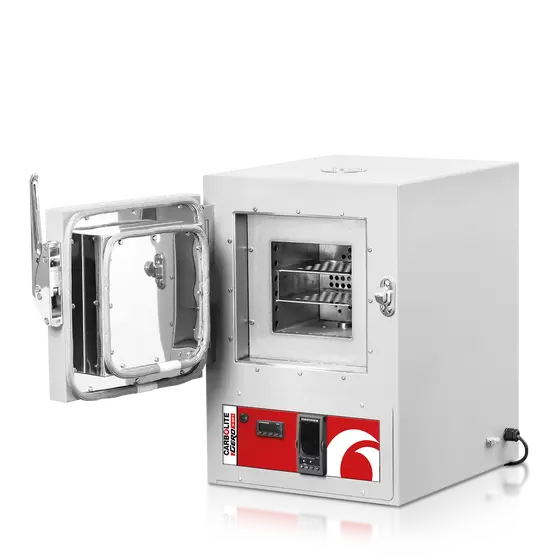ESTUFAS PARA APLICACIONES INDUSTRIALES
ideal para aplicaciones exigentes y de alto rendimiento
Las estufas para aplicaciones industriales de Carbolite Gero han sido desarrolladas para diversas aplicaciones y se emplean sobre todo para el procesamiento por lotes.
Estas se caracterizan por su diseño robusto y bien concebido, así como por el empleo de materiales de larga vida útil, lo que las hace ideales para el uso en entornos de producción.
Todas las estufas industriales puede suministrarse con una amplia gama de opciones de equipamiento, por ejemplo diversos mecanismos de carga y manipulación, o bien sistemas avanzados de control de temperatura.
ESTUFA INDUSTRIAL
ESTUFA INDUSTRIAL
ESTUFA INDUSTRIAL
ESTUFA DE ENFRIAMIENTO RÁPIDO
LAS ESTUFAS INDUSTRIALES - EN DETALLE
Entre las aplicaciones típicas de las estufas industriales pueden mencionarse el secado, recocido y curado de componentes. En estas puede además implementarse una gran variedad de modificaciones según las necesidades individuales, lo que les permite cumplir con los requisitos exigentes de diferentes áreas industriales.
Para aplicaciones específicas, tales como el tratamiento térmico según la norma AMS 2750G de Nadcap, estas estufas pueden modificarse de tal forma que cuenten con dispositivos de control y registro de datos adecuados que garanticen una uniformidad de temperatura exacta.
ESTUFAS PARA APLICACIONES INDUSTRIALES - FAQ
WHAT IS AN INDUSTRIAL OVEN?
An industrial oven is a heating device that meets the precise temperature control and temperature uniformity requirements of a specific process. It is a common piece of equipment used in a production environment where the heating of materials is required. Depending on the application, industrial ovens vary in size and volume as well the maximum temperature they can reach. Industrial ovens can be manufactured to comply with industry standards such as NADCAP AMS2750G and CQI-9.
WHAT IS THE DIFFERENCE BETWEEN A LABORATORY AND AN INDUSTRIAL OVEN?
In principle, the difference between a laboratory oven and industrial oven is the size. Industrial ovens tend to process larger batches of material, whereas laboratory ovens are typically used to process smaller samples. Industrial ovens have a more robust construction in order to withstand the demands of production facilities.
HOW DOES AN INDUSTRIAL OVEN WORK?
An industrial oven works by heating the air containing with the oven chamber using electrically operated heating elements. The air is usually mixed by using a circulation fan mounted within the heated chamber to ensure uniform heat distribution, often known as ‘forced convection’. Parts placed inside the chamber are heated by the hot air.
WHAT IS THE TEMPERATURE RANGE OF AN INDUSTRIAL OVEN?
The typical operating temperature of an industrial oven is entirely dependent on the application requirements. Carbolite Gero supplies ovens with maximum temperatures ranging up to 300°C for applications such as drying and moisture extraction, and ovens for applications such as annealing and sintering that can require temperatures up to 600 or 700°C.
WHAT IS THE BENEFIT OF AN ELECTRICAL INDUSTRIAL OVEN OVER A GAS OVEN?
The primary benefits of an electrical industrial oven over a gas oven are cleanliness and accuracy of temperature control. Electrical heating is very clean because there are no ‘products of combustion’ contaminating the chamber. Electrical heating achieves very precise temperature control because the power to the heating elements can be controlled very quickly and accurately.
HOW EXPENSIVE IS AN INDUSTRIAL OVEN TO RUN?
The cost of running an industrial oven is primarily dependent on the operating temperature and size of the chamber. Energy efficient industrial ovens are well insulated and the power consumption can be easily calculated. If the process requires significant air changes, for example to remove potentially explosive solvents, then the running costs will be higher.







